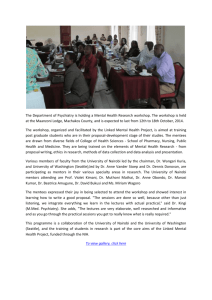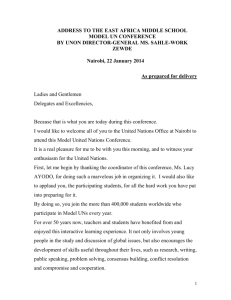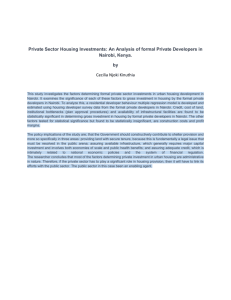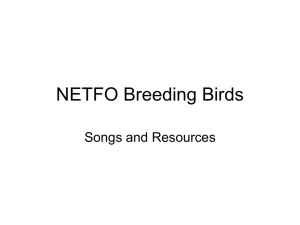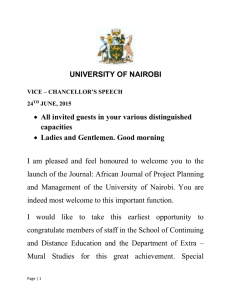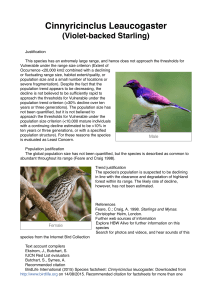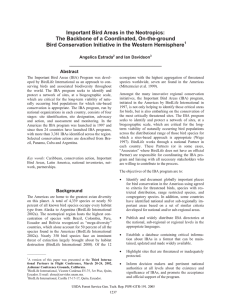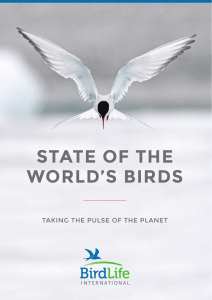Document
advertisement
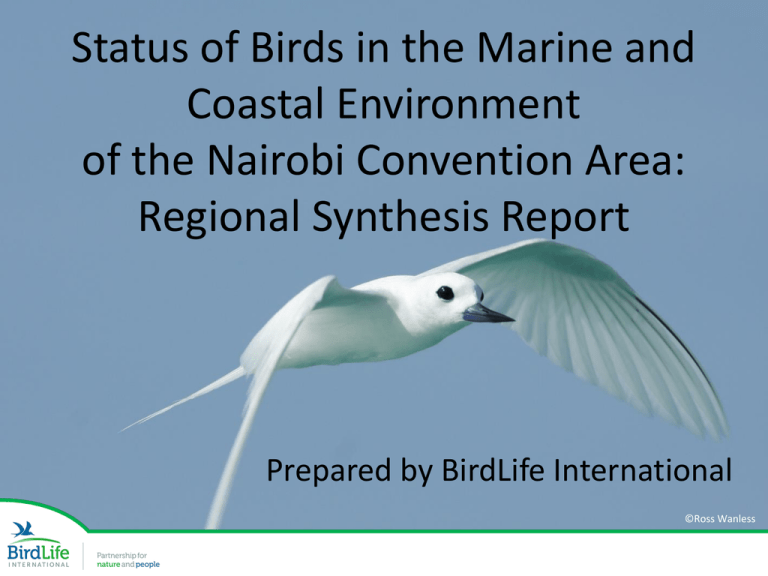
Status of Birds in the Marine and Coastal Environment of the Nairobi Convention Area: Regional Synthesis Report Prepared by BirdLife International ©Ross Wanless Aim of the report Aims • Provide an objective and scientific basis for listing birds in the Protocol Concerning Endangered Wild Fauna and Flora in the East Africa Region • Provide information on the status of birds and the key habitats in the region • Use information on birds to extrapolate the status of the wider ecosystems in the WIO region Species Key findings • 108 species of concern to be listed in Annex II • The major threats are: – – – – – Invasive Alien Species Agricultural expansion Climate change Biological resource use Lack of enforcement capacity ©Ross Wanless ©Ben Lascelles Sites 53 marine Important Bird Areas identified Key findings Aim Nairobi of theConvention report Aims Recommendations 1. Replace bird species currently listed in Annex II with the updated bird list 2. Review the species lists of other taxa listed in the protocol. 3. Prioritise conservation efforts on the 108 species proposed and their habitats 4. Strengthen the protection of species proposed and candidate marine IBAs nationally and at site level Aim Nairobi of theConvention report Aims Recommendations 5. Review regional conservation actions and policies to encompass the High Seas 6. Establish clear links between the Nairobi Convention and the complementary Multilateral Environmental Agreements (MEAs) 7. Establish a network of bird experts in the region to advise on bird protection Contracting Parties Recommendations Regional cooperation is required to tackle the following threats: 1. Alien Invasive species 2. Offshore oil and gas exploration 3. Oil shipping 4. Fisheries management 5. Integrate environmental and sustainability considerations into economic development ©Ross Wanless With Thanks Acknowledgments • Nairobi Convention Secretariat • All the Contracting Parties and government ministries involved • National Task Forces • Reviewers and contributors • BirdLife Partners (NatureKenya, Wildlife Conservation Society Tanzania, BirdLife South Africa, Asity Madagascar, Nature Seychelles) • Non-BirdLife Partners (University of Reunion, Dahari Comoros, Mauritian Wildlife Foundation, Kenya Marine and Fisheries Research Institute) • National experts: Carlos Bento, Mozambique • WIO-C members © Mark Anderson
